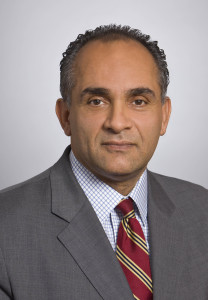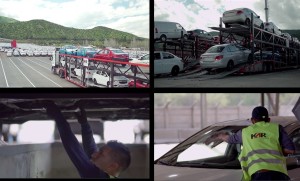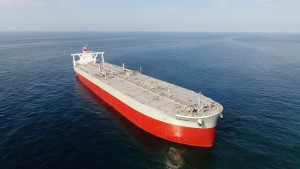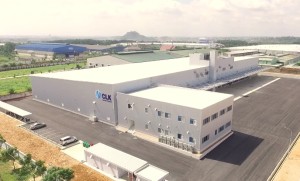Start of Auto Logistics Services for Finished Vehicles in Philippines
In the Philippines, where sales of automobile are remarkable, logistics services for finished vehicles have started operations. K Line Auto Logistics Philippines, Inc. (hereinafter referred to as “KALP”), a joint venture between “K” LINE and local partners, has signed a contract with a major automobile manufacturer and started to work together with them from this November.
In Asia, where automobile sales are becoming active, especially within the ASEAN region, demand for finished car distribution is increasing, such as improving the efficiency of supply chains to transport and sales of imported/manufactured automobiles. In particular, the Philippine’s domestic distribution demand of finished vehicles is increasing, such as new car sales in the Philippines having recorded highest totals for 5 consecutive years. In 2017, an increase of about 16% was also recorded, so KALP will be a service that further responds to local customer needs.
KALP provides High Quality and Value Added services for Import customs clearance, land transportation, storage, and Pre-Delivery Inspection (PDI). Last year, in Vietnam, where growth of new car sales is also remarkable as well, we started total service of logistics for finished vehicles for the first time in that country, and have been providing integrated transportation in cooperation with maritime transportation service by our own Pure Car Carrier (PCC).
In our medium-term management plan, we positioned logistics business as one of our stable and growth businesses, and we are continuing to expand completed Auto Logistics Services. Launching of KALP’s automobile logistics-related service will be the 10th (tenth) country, with service now covering major ASEAN countries. We will continue to make efforts to improve customer satisfaction by utilizing know-how of high-quality transportation cultivated through marine transportation by our PCC fleet.









 o., Ltd (hereafter called NACKS), China on November 15, 2017.
o., Ltd (hereafter called NACKS), China on November 15, 2017.